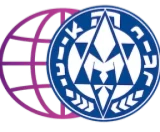Romi Morales
Throughout my years as an educator, this date seemed somewhat distant to me. I was privileged to be born in a city where I never felt discriminated against for being Jewish, I grew up in a country where peace reigned and where the reason for my aliyah was the deep desire to live a Jewish life as a norm in the national home of the Jewish people: Israel. I left when I wanted to, because I wanted to. Nobody threw me out.
In this sense, I found it very difficult to connect with the sensations, emotions and feelings of this date, despite understanding the gravity of the tragic events that our people have had to go through throughout their history. Just thinking about the destruction of what was the spiritual, cultural and national centre of our people and the subsequent consequences (among them the exile and the constant attacks we have received), is enough to understand why this day was determined by our sages as a day of collective mourning.
This year, however, my perspective is somewhat different.
This year, on the 7th of Tammuz (the day on which the breach of the walls surrounding Jerusalem is remembered and the siege of the city came to an end, giving rise to the process of the destruction of the Temple) someone wrote: “This year no one has to explain to us why we fast when someone breaches our walls”. In truth, he is right.
Since 7 October 2023, I have known many feelings for the first time. The levels of violence exercised against Israeli citizens and foreigners in Israel, just because they are Jewish, reminded me of the greatest tragedies of our people in exile. Concrete warfare and psychological warfare have taught me to (over)live in a routine in which announcements of soldiers fallen in war and days passing one after the other without our being able to free our abductees are, unfortunately, our daily bread. The fires in the north of the country, the cities destroyed by missiles fired by the Hezbollah terrorist organisation from Lebanon and the tens of thousands of displaced people who have been driven from their homes, show me terrible images of destruction. There are days when it is unclear how we can move forward, how we will manage to rebuild all that has been damaged, how we are to heal the wounds of a society deeply wounded physically, mentally and emotionally. For those days, this Tisha veAv.
Tisha veAv is the day when we remember all the tragedies we went through, the painful events that are engraved in the collective memory of our people to this day. It is usually seen as a dark day. However, if we choose to shift the focus to the “after”, we can discover how much hope, optimism and strength there is in this day.
This day is a reminder that while there will be difficult times, times of crisis and pain, there is in us the ability to overcome adversity and come out of it stronger. Tisha ve Av is the day that comes to remind us how resilient we are, or in the words of the Tnua, Tisha ve Av comes to explain to us the relevance of our famous “Chazak ve Ematz”: how strong in body (to withstand the storms) and brave in heart (to dream of a better future and fight to achieve it) we were, are and will be.
As educators it is essential that, especially these days, we choose wisely where to focus when educating. It is true that we can speak from the place of trauma and focus on destruction. But it is also possible to talk about how, within difficult situations, there were people who managed to move forward and how their example helped others to do so as well. We can choose to focus on heroism. We can choose to focus on the hunger to hold on to life and how we as a people have known how to use creativity to safeguard it as the supreme value that it is. We can speak of Judaism’s flexibility and adaptability to change, elements that undoubtedly ensured the continuity of our people.
Tisha veAv, this year for me, took on a new meaning. Today is a reminder that, while we may be in the eye of the hurricane today, we do have the strength to face it and overcome it and, if necessary, when it all passes, to begin again.
Chazak VeEmatz!











